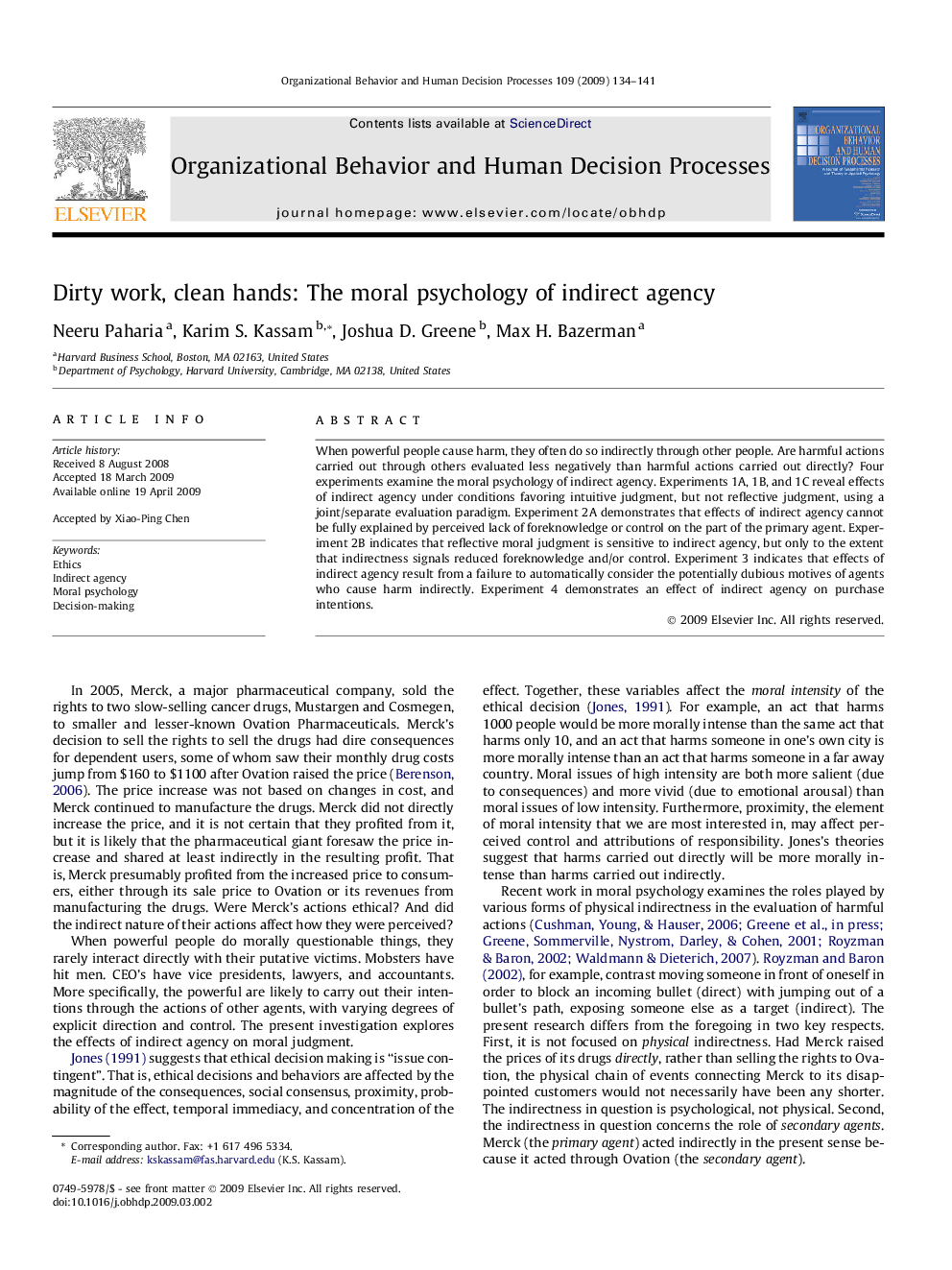| Article ID | Journal | Published Year | Pages | File Type |
|---|---|---|---|---|
| 888956 | Organizational Behavior and Human Decision Processes | 2009 | 8 Pages |
When powerful people cause harm, they often do so indirectly through other people. Are harmful actions carried out through others evaluated less negatively than harmful actions carried out directly? Four experiments examine the moral psychology of indirect agency. Experiments 1A, 1B, and 1C reveal effects of indirect agency under conditions favoring intuitive judgment, but not reflective judgment, using a joint/separate evaluation paradigm. Experiment 2A demonstrates that effects of indirect agency cannot be fully explained by perceived lack of foreknowledge or control on the part of the primary agent. Experiment 2B indicates that reflective moral judgment is sensitive to indirect agency, but only to the extent that indirectness signals reduced foreknowledge and/or control. Experiment 3 indicates that effects of indirect agency result from a failure to automatically consider the potentially dubious motives of agents who cause harm indirectly. Experiment 4 demonstrates an effect of indirect agency on purchase intentions.
